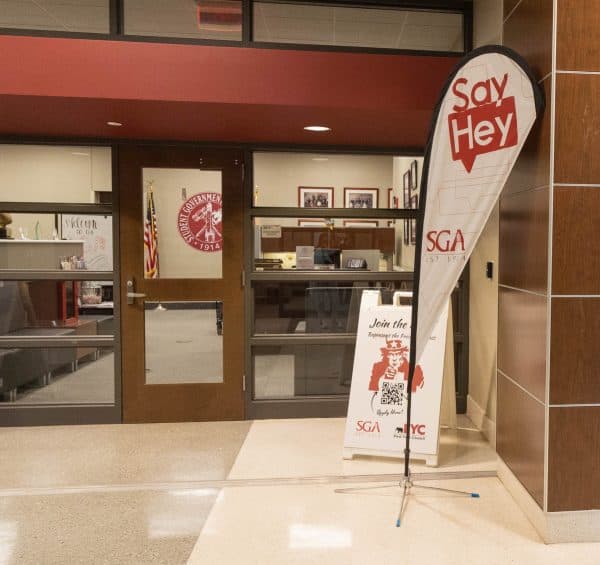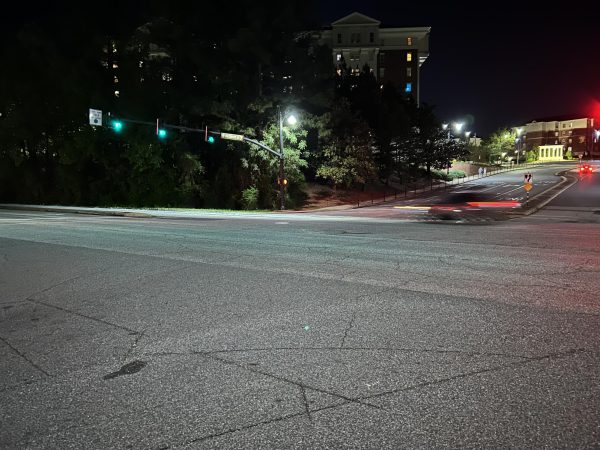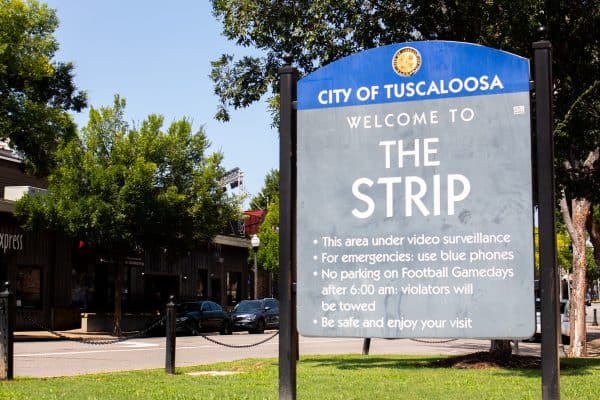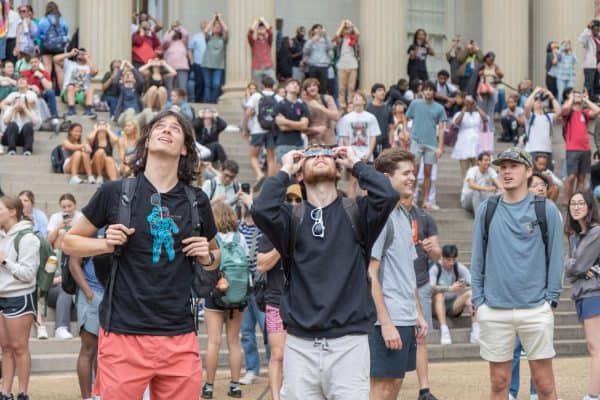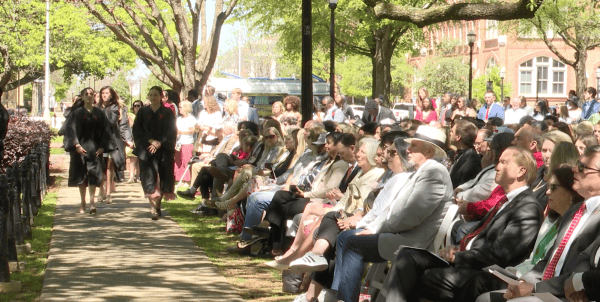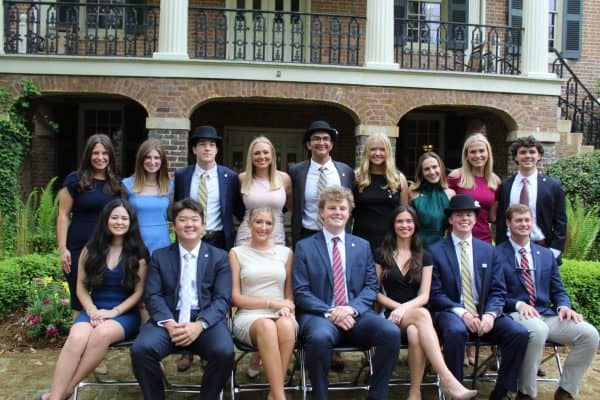Alumni couple supports LGBTQ+ community through scholarship
September 13, 2018
For several years, Elliot Mitchell, 69, and Clark West, 64, have been looking to help the LGBTQ+ community, and in turn, sought out the creation of the Patti Sue Mathis Point Scholarship.
Mitchell and West, a married couple, met as students at The University of Alabama and have been together for 46 years. The two met during West’s freshman orientation in 1972.
Devoted to the LGBTQ+ community, Mitchell and West surrounded themselves with others who were LGBTQ+ or supported the LGBTQ+ community throughout their college years.
The two said because they had each other, they were blessed with support, unlike many others in the LGBTQ+ community.
The scholarship the two men set up is named after Patti Sue Mathis, who died by suicide at age 22 in 1995 in Wicksburg, Alabama. Her father Nathan Mathis blamed her death on the lack of support and acceptance she didn’t receive being a lesbian, according to AL.com.
Mitchell and West were upset when the news of Mathis’ suicide reached them.
“I was very, very heartbroken,” West said. “I grew up in Dothan, and Elliot was in Troy most his life. I don’t know, it just brought back a lot of memories. It brought back a lot of abuse I suffered, even at the hands of teachers.”
Mathis’ death and Michell and West’s many years of devotion to the LGBTQ+ community ignited the decision to create the Patti Sue Mathis Point Scholarship. The scholarship is $100,000 for an LGBTQ+ student to attend the University of North Alabama.
Mitchell said the two never approached The University of Alabama about this scholarship. They had already been looking at UNA before, so they never considered the University.
Mitchell and West decided to look at the University of North Alabama because they have been working with UNA for several years. Mitchell and West are funding a project there called the Center for Social Inclusion, a center within the campus that advocates for inclusion and diversity.
West said this diversity center idea was rejected in the past at The University of Alabama.
“[The University of Alabama] will always have a special place in our hearts, and we have many, many good friends there – professors, students – and we love Alabama, and we actually are welcomed with open arms there so we don’t have a beef with this school,” West said. “What we do have is when we – years ago, when this all started – when we wanted to do a diversity center, some of the powers that are there said ‘no’.”
West said the men reached out to the University in 2015 when Judy Bonner was president. When asked to comment, Chris Bryant, assistant director for the office of media relations, said in an email, “We will not be providing a statement on this.”
The men have worked through the Point Foundation in Los Angeles to create the scholarship.
“The Point Foundation in Los Angeles is, I believe, the country’s largest provider of LGBTQ+ scholarships,” Mitchell said. “In fact, all of their scholarships are LGBTQ+, so we have an arrangement with Point that, when we do a scholarship, they are the shepherd of that scholarship.”
In order to receive the Patti Sue Mathis Point Scholarship, Mitchell said the student must be LGBTQ+ and a leader in the community where the student has shown some effort in being a part of LGBTQ+ undertakings.
Mitchell said the application process for the scholarship includes an interview where the Point Foundation brings the student to Los Angeles. The student must have a minimum GPA of 3.3, and the student has to be an advocate for LGBTQ+ rights in the community or in school. Additionally, the student has to agree to be mentored during each year in school and has to attend leadership conferences and other meetings throughout the four-year career with the Point Foundation.
“The goal of all of these factors in the scholarship is to create new leaders in the LGBTQ+ community,” Mitchell said.
The reward for the student will not only provide financial support but also invaluable mentoring throughout his or her college career.
“We do realize that the politics in this state need to change … We want to change that,” West said. “We want a lot of these future leaders in our community to come from places like Georgia, Alabama, Mississippi, Tennessee, Kentucky, South Carolina, North Carolina, Florida.”
West said he would have loved to have a support system there for him during his college experience.
“I think it is really cool,” said Kendell Wilson, a senior majoring in political science and Spectrum member. “A lot of the times you will find an LGBTQ+ student that is not receiving any funding from their parents and they don’t know if they are going to be able to continue their education, so having a scholarship available opens doors for these students so they can get that education.”




